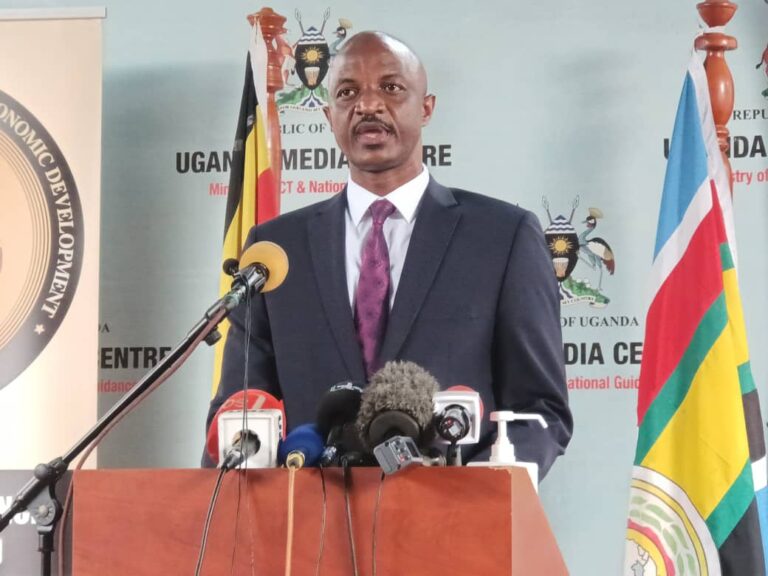The Permanent Secretary and Secretary to Treasury, Ministry of Finance, Ramathan Ggobi has said that Government has allocated 400 billion shillings in the 2022/2023 financial year budget to enhance salaries and wages of scientists.
Speaking at the launch of National Budget Month for FY2022/23 in Kampala on Tuesday, Ggobi said other public servants will wait.
“Government of Uganda has provided in the next budget, over 400 billion shillings to enhance the salaries and wages of health workers, and other scientists. In addition, we are also working on completing all the scientists by getting that component of the science teachers. That is the first phase. As we go on, we are going to address the wages and salaries of other public servants in a phased manner,” Ggobi said.
“We are going to phase this, and for example our colleagues in the security forces, they need to be supported as well, to be enhanced, we have public servants working in Government Ministries, Departments and Agencies (MDAs), we have the policemen, and those in prisons and so on. So, there is a plan to enhance salaries for everybody, and Government is going to do that, but in a phased manner so that we don’t just start to borrow to pay wages. Uganda will not do that,” he added.
Scientists especially health workers have many times laid down tools over poor pay.
As school reopened for second term last week, science teachers went on a sit down strike on the pretext that they are poorly paid.
President Museveni has for long called for salary enhancement for scientists, arguing that they are hard to find.
While commemorating the International Labour Day celebrations at Kololo Independence Grounds at the beginning of this month, Museveni gave an example of Soroti Flying School which he said, was about to collapse due to poor pay for pilots.
“We shall support our arts people, but let us start with scientists because we don’t have enough money to handle both. So, rather than saying we all get stagnant, that is not correct. I will give you an example, there is an institution called Soroti Flying School. That wonderful Institution was about to die because of this policy. So, please this equivalency must stop. Soroti Flying School was about to collapse because of this equivalency, that we are all government workers,” Museveni said.
Meanwhile, Ggobi said that some of the things people are asking Government to do will make it borrow beyond certain levels, yet Uganda’s debt is still sustainable.
“Our debt level is one the lowest in the region, not by mistake. And yet we have also borrowed substantially as you have seen in order to keep Ugandans alive during COVID-19 but also to build infrastructure. We have borrowed money but our debt is still very sustainable, and within the average of our peers. So we don’t want to do things which will make us borrow beyond beyond those levels,” he said.
Ggobi ruled out advices to Government to borrow to enhance salaries of public servants.
“There are many countries you want us to benchmark on certain things, but as I am telling you now, they are borrowing to pay salaries of public servants. We shall not do that,” he said.
Meanwhile, the PS/ST said that in the budget of 2022/23 financial year, Government has put a number of initiatives to support the recovery of the economy.
“We have a small recovery fund for small businesses worth 200 billion shillings. Already intended Beneficiaries are accessing it. If you have a small business which is struggling to recover because of working capital, government has provided relief funding at 10% interest, and you can access up to 100 million shillings.”
In the same budget, Ggobi said Government has allocated financial support to the agricultural sector so that farmers can produce more food. This, he said is because, in Uganda, the main driver of inflation is food.
Despite the current hike in commodity prices, Ggobi said the relief is because Ugandans still have food to eat.
If a country like Uganda doesn’t have food, the PS said that is where the challenge is.
Meanwhile, he noted that Government wants to go beyond food, and support industrialization, adding that a lot of initiatives have put in the industry sector, that include among others to build infrastructure in the industrial parks, support agro-industrialization so that farmers are able to benefit.

